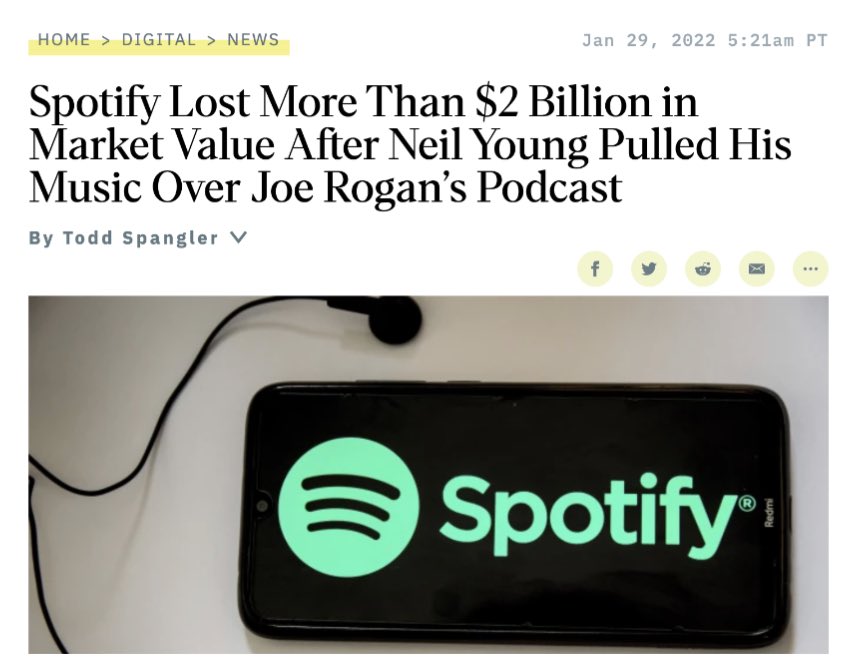
1/ Do you remember the Spotify boycott in January and headlines like this in the media?
Did you wonder what happened to the actual Spotify revenues and subscriber numbers?👇
cc @tuchmanna @zhu_xinrong
#EconTwitter #MarketingTwitter
Did you wonder what happened to the actual Spotify revenues and subscriber numbers?👇
cc @tuchmanna @zhu_xinrong
#EconTwitter #MarketingTwitter

2/ We looked into Spotify’s subscriber and revenue numbers in the US and found a null boycott effect: Spotify’s subscribers continued to grow at a rate statistically indistinguishable from the pre-controversy trend. 

3/ We discuss similarities and differences between the Goya and Spotify boycotts and important future directions of research in the political consumerism domain in this rejoinder: papers.ssrn.com/sol3/papers.cf…
4/ We thank Yphtach Lelkes @ylelkes, JP Dubé @jdube6, and Bart Bronnenberg @BartBronnenberg for their thoughtful commentary on our Goya paper that inspired this rejoinder. As well as Dan McCarthy @d_mccar and @earnestresearch for facilitating access to Spotify subscriber data.
Here are the commentaries on the original Goya paper:
Bronnenberg and Dubé (2022): jp-dube.com/research/paper…
Lelkes (2022): dropbox.com/s/8h2j1uu1ce3c…
Bronnenberg and Dubé (2022): jp-dube.com/research/paper…
Lelkes (2022): dropbox.com/s/8h2j1uu1ce3c…
Finally, here is the thread summarizing Goya's boycott paper:
https://twitter.com/JuraWho/status/1557735051697086467?s=20&t=jlQNDiv01QJQFxNoui2xzg
• • •
Missing some Tweet in this thread? You can try to
force a refresh



